Crisis-hit France is on the verge of mass civil unrest with some warning of an insurrection after the surprise collapse of President Emmanuel Macron‘s government on Monday.
French Prime Minister François Bayrou lost a confidence vote of MPs over his austerity budget, plunging the country into political turbulence as it teeters on the brink of economic crisis over spiralling debt.
Now, politicians and the police are bracing for further chaos on Wednesday as a national day of disruption organised by furious anti-Macron protesters threatens to bring the divided nation to a total standstill.
Called Bloquons Tout or ‘Let’s block everything’, the general strike led by unions is expected to bring together some 100,000 demonstrators who will walk out of the office, boycott businesses, stage sit-ins and blockade streets. On September 18, several unions are also calling for more demonstrations.
But French interior minister Bruno Retailleau last night warned that the day of unrest could spiral beyond the bounds of normal protest and transform into an ‘insurrectional climate’.
His warning was echoed by the head of the Paris Police Prefecture, Laurent Nuñez, who said he expected ‘sabotage’ attempts and major blockades of ring roads, oil depots, train stations and airports.
Nuñez said the police force has ‘a number of fears’ about the general strike due to the way it will bring together a number of disparate groups without a clear agenda – apart from national malaise under President Macron.
‘It’s a movement that doesn’t really have any organisers, it’s a general call with a multitude of actions, and we see that the call has been taken up by the ultra-left and far-left movements who are calling for rather harsh actions,’ he said on BFMTV-RMC.
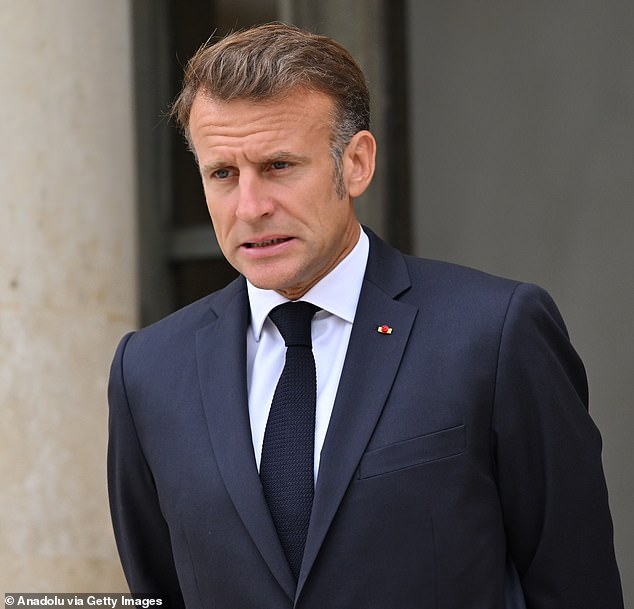
The government’s breakdown comes as approval ratings for French President Emmanuel Macron plummet to a record low, with 77 percent of the nation not approving of his work
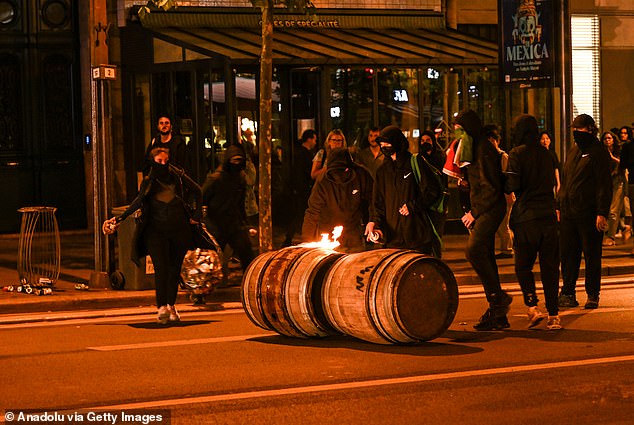
Masked rioters clash with riot police near Place de la Republique during a protest over the legislative election results, on July 8, 2024 in Paris, France
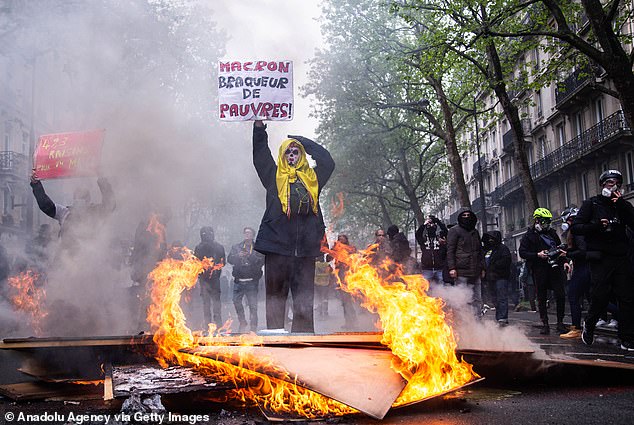
Demonstrators hold banners and flags as they protest on International Workers’ day against the government’s pension reform in Paris, France on May 1, 2023
In total, some 80,000 officers are expected to be deployed in an ‘exceptional’ operation, he said.
Several rail unions including SUD-Rail and the CGT-Cheminots have supported walkouts on September 10, meaning the French national rail network will suffer.
Moreover, multiple flights are expected to be cancelled and delayed because the aviation branch of the SUD union has called for workers to participate in the strike.
Macron is receiving calls to resign or be impeached following the collapse of his government, as he faces the tough decision of who to appoint as the seventh prime minister of an increasingly unstable mandate.
The French presidency confirmed in a statement that Macron will meet Bayrou on Tuesday ‘to accept the resignation of his government’, after just nine months of him in office.
Lawmakers voted to oust the prime minister and his minority government with 364 votes against the veteran centrist politician and 194 in his favour, meaning the nation will now have to face its fifth prime minister in less than two years.
The next government’s most pressing task will be to pass a budget, the same challenge Bayrou faced when he took office nine months ago. Securing the backing of a very divided parliament will be equally hard.
‘You have the power to bring down the government, but you do not have the power to erase reality,’ Bayrou told lawmakers before losing the confidence vote.
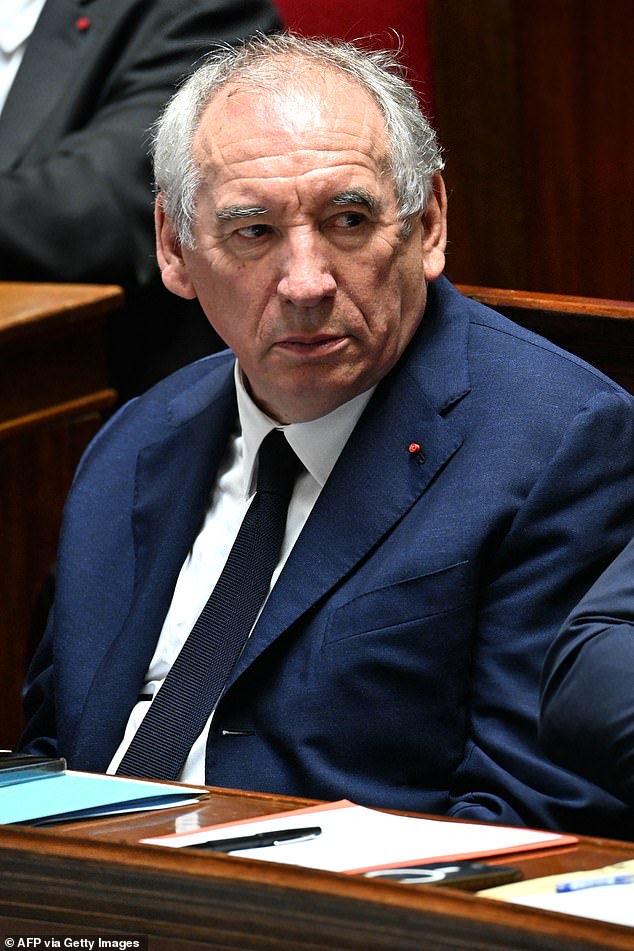
France’s Prime Minister Francois Bayrou lost a confidence vote of MPs over his austerity budget yesterday
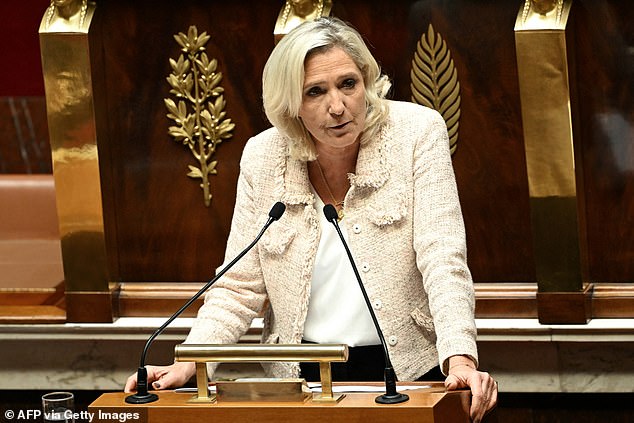
‘This moment marks the end of the agony of a phantom government,’ fa-Right leader Marine Le Pen said
‘Reality will remain relentless: expenses will continue to rise, and the burden of debt, already unbearable, will grow heavier and more costly,’ he said.
He had called the confidence vote to try to win parliamentary support for his strategy to lower a deficit that stands at nearly double the European Union’s 3 percent ceiling, and to start tackling a debt pile equivalent to 114 percent of GDP.
Justifying his thinking, he warned that there was a ‘high risk of disorder and chaos’ if MPs failed to back his budget, describing the nation’s spiralling national debt as ‘a terribly dangerous period… a time of hesitation and turmoil’.
But opposition parties were in little mood to rally behind his planned savings of 44 billion euros (£38.11 billion) in next year’s budget, with an election for Macron’s successor looming in 2027.
‘This moment marks the end of the agony of a phantom government,’ far-Right leader Marine Le Pen said, pushing for a snap parliamentary election, which Macron has so far ruled out.
‘Macron is now on the front line facing the people. He too must go,’ Jean-Luc Melenchon, leader of the hard-Left France Unbowed, said on X.
‘We are giving Macron two choices. Either he can be impeached or he can resign,’ said French National Assembly Deputy Mathilde Panot.
The political upheaval arrives at a time when the French president is spearheading European efforts to end Russia’s war on Ukraine, boosting his international profile.
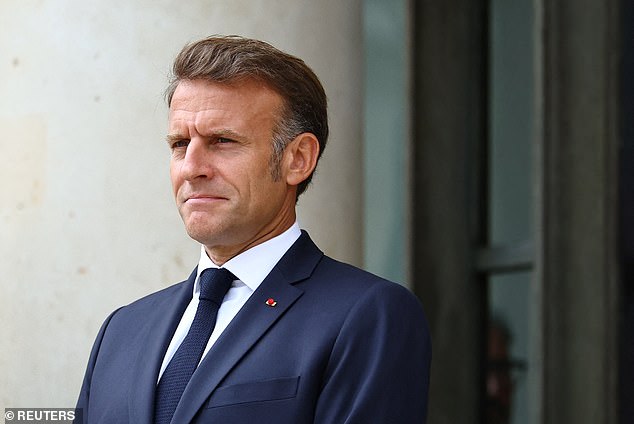
According to a poll by Odoxa-Backbone for Le Figaro newspaper, 64 percent of French want Macron to resign rather than name a new prime minister
But polling at home does not make pretty reading, and he is forbidden from standing a third time in 2027.
According to a poll by Odoxa-Backbone for Le Figaro newspaper, 64 percent of French want Macron to resign rather than name a new prime minister.
Some 77 percent of people do not approve of his work, Macron’s worst ever such rating, according to an Ifop poll for the Ouest-France daily.











